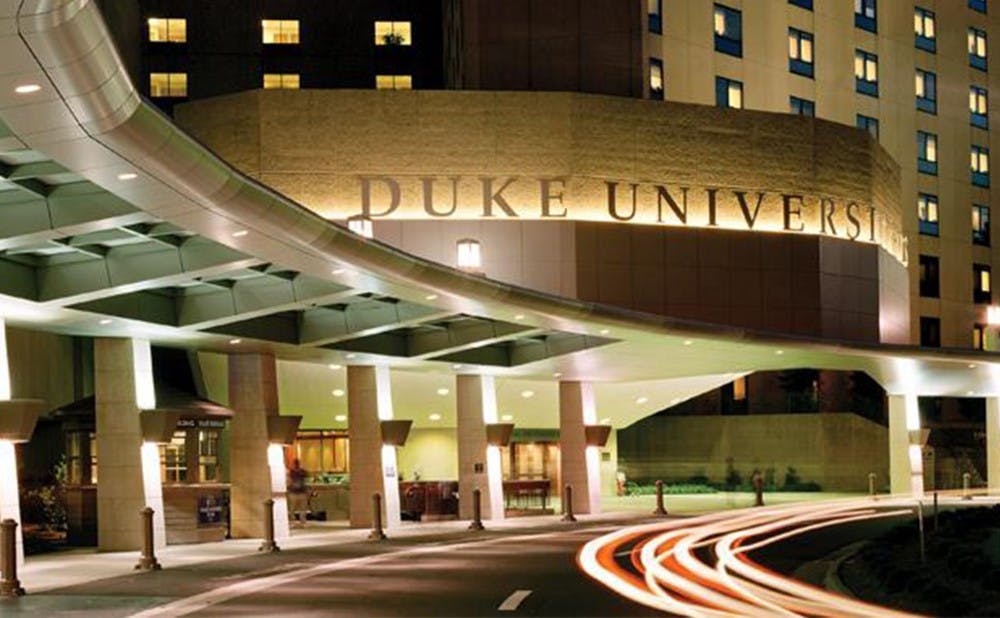The Duke Human Vaccine Institute is tackling an epidemic that has claimed 40.1 million lives and continues to impact tens of millions more across the world.
Guido Ferrari, professor of surgery and research professor of molecular genetics and microbiology, and Wilton Bryan Williams, associate professor of surgery and medicine and assistant professor of immunology, are currently leading a research project between Duke and several other universities known as the Consortium for Innovative HIV/AIDS Vaccine and Cure Research (CIAVCR). The pair have been testing vaccine candidates on rhesus monkeys infected with Simian Human Immunodeficiency Virus, and recently helped the DHVI receive a $25.9 million grant towards the project due to one of the vaccine candidates showing potential.
Williams is hopeful that the vaccine candidates can lead to clinical results, but also noted that it will take time to translate existing results from animal models to humans.
“Ultimately, we and others want to end the HIV pandemic, because this is a pandemic that's gone on for years,” said Williams. “But we'd really love to see proof of concept, that one effective vaccine can prevent people from getting infected.”
Currently, an estimated 38.4 million people worldwide live with HIV but treatment options are limited, with most victims taking antiretroviral treatment (ART) or HIV treatment shots. ART requires that patients take daily medicine to suppress virulence in the body and slow HIV from destroying CD4 T lymphocytes.
According to the CDC, individuals can only switch to HIV treatment shots when their body contains an undetectable viral load. But while shots can temporarily help reduce adverse effects, preventative vaccines would reduce the need for shots by averting infection in the first place.
In 1984, three years after the first case of AIDS was reported, it was announced that an HIV vaccine would be ready for testing in two years.
Despite the global effort since then, no such preventative vaccine has been developed. Globally, one of the most promising results of HIV vaccine trials took place in Thailand with the RV144 in 2009, involving 16,000 people and taking three years to complete. The vaccine had an efficacy rate of around 31%, not meeting standards for use outside of the trial, but still being the first to show signs of protection against HIV.
Since the RV144 trial was conducted, researchers have been working to develop a preventative vaccine and advance potential treatments. Researchers at Duke have been involved in designing an HIV vaccine for decades, such as the Center for HIV/AIDS Vaccine Immunology, which launched in 2005.
Ferrari and Williams applied for a grant from the National Institutes of Health through a Request for Application. Ferrari said that they were chiefly able to acquire the funds because they demonstrated that one of their vaccine candidates had shown promise and that they required funds to improve their vaccine design.
The pair said that they will now allocate grant funds to accomplish two primary objectives. The first, referred to as the vaccine arm, is developing a vaccine that uses antibodies to prevent HIV-1 infection. The second, known as the cure arm, is developing therapeutic cures to eliminate latent HIV infections, as existing ART cannot recognize and eradicate cells with latent HIV.
For the cure arm, they will use the funds to acquire agents known to activate latent HIV from ViiV, a pharmaceutical company dedicated to HIV research, and utilize retroviral therapy to eradicate the virus. For the vaccine arm, they plan to use the grant money to explore different vaccination routes, such as one that is protein-based, or newer mRNA-based vaccines, such as those used in response to the COVID-19 pandemic, to prevent infections from viral exposure.
While they understand that their research is unlikely to be the end-all solution to the HIV pandemic, both doctors are still optimistic about how their work will impact the future of HIV vaccine development.
“The results of this study will provide some proof of principle of whether or not this is possible. Because if it works in this animal model, then it gives us hope,” Williams said.
Get The Chronicle straight to your inbox
Sign up for our weekly newsletter. Cancel at any time.
Jianna Choi is a Trinity sophomore and a staff reporter for the news department.

